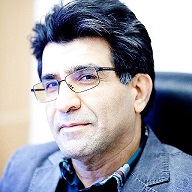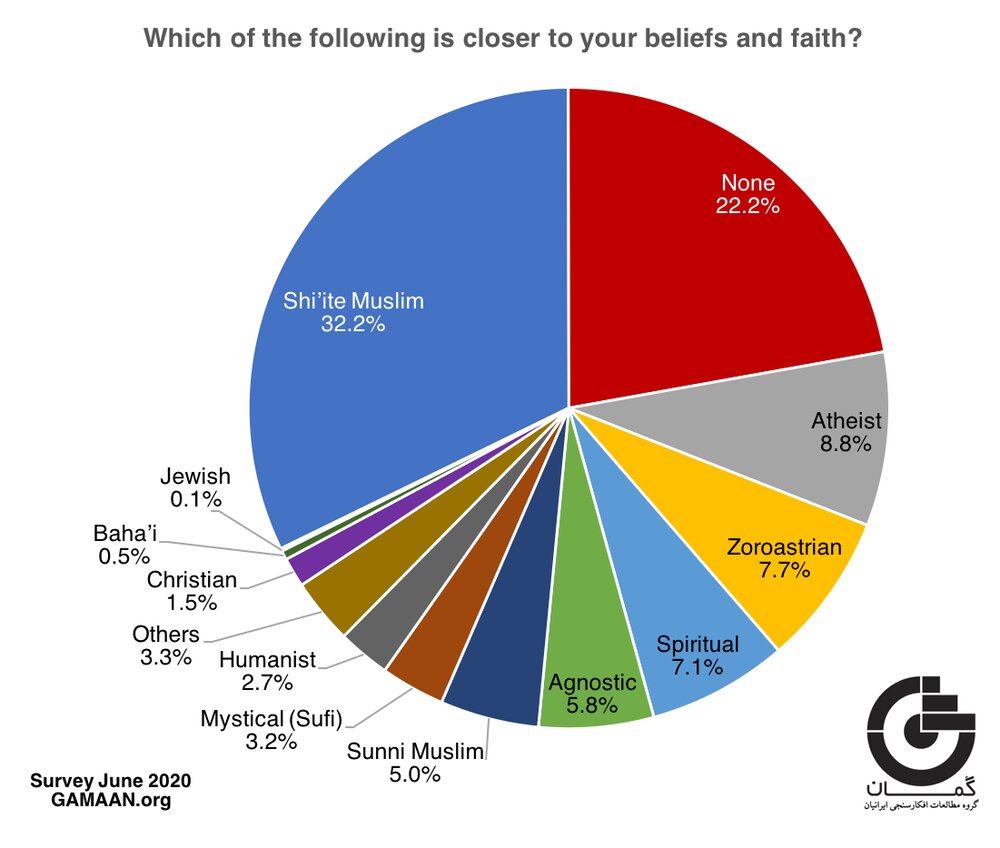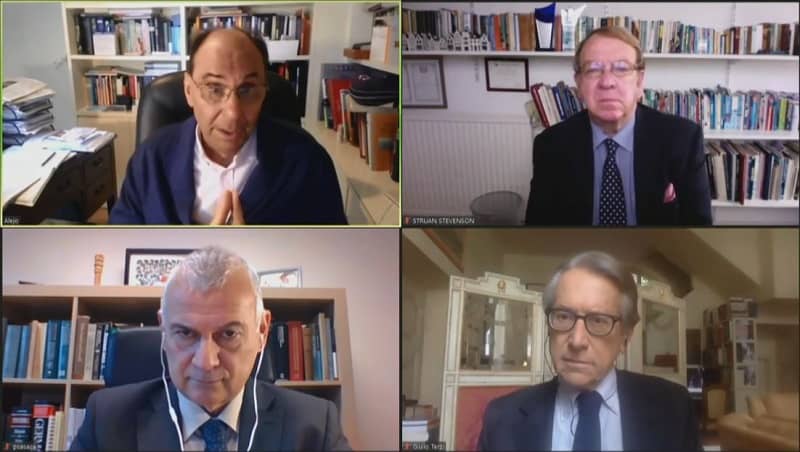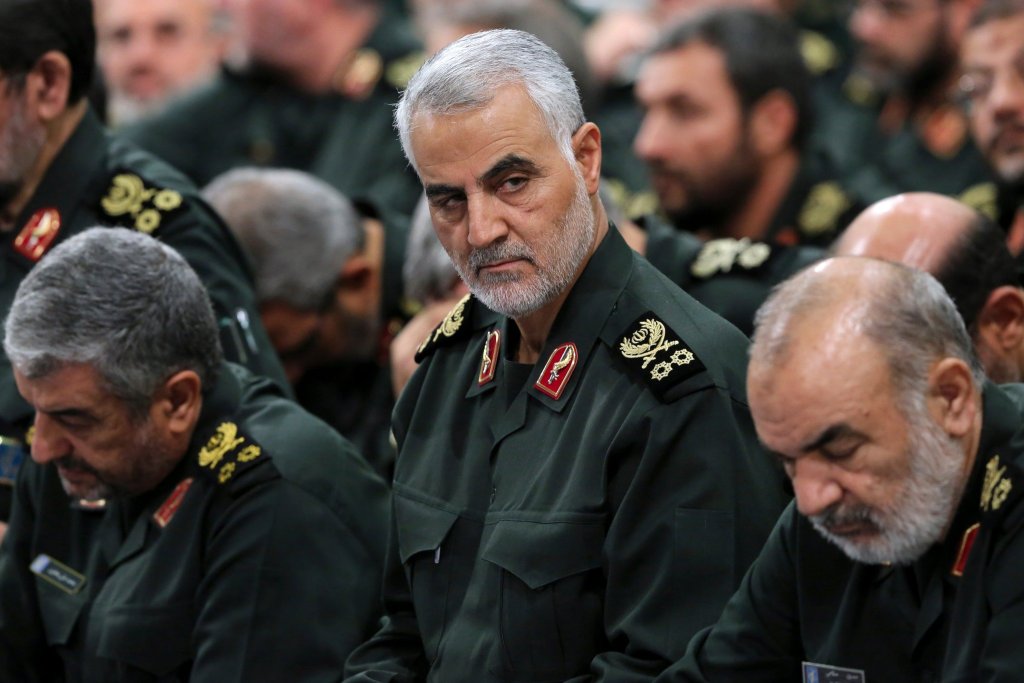مهرداد درویش پور
چهل سال پس از انقلاب٥٧، گفتگو درباره معمای آن انقلاب همچنان موضوع بحث است. هرچه شدت انزجار و سرخوردگی از نظام برآمده از انقلاب بالا میگیرد، پرسش درباره چرایی آن انقلاب و تردید در ضرورت آن و میل به برائت فزونی می یابد. فراگیر شدن این پشیمانی جمعی، بیشتر از همه زمینهساز برآمد ناسیونالیسم نوستالژی گرایانهای شده است که در حسرت "عظمت گذشته"، راه پی ریزی آینده را در رجعت به آن مییابد.
نسل جوانی که استبداد، شکاف طبقاتی و فساد عصر پهلوی را تجربه نکرده است، نیز میپرسد چه شد که اسلامگرایان توانستند با چیره شدن بر انقلاب، جامعه را به عقب برانند؟ چرا روشنفکران نتوانستند واپسگرایی رهبری آن انقلاب را دریابند یا در برابر آن بایستند؟ چه شد که زنان که به هر رو به یمن اصلاحات عصر پهلوی، از حقوق بهتری برخوردار شدند، به صورت میلیونی به سربازان بنیادگرایان اسلامی بدل شدند که زن ستیزی، ایدئولوژی رسمی آن بود؟
کانونیترين اختلاف در تحلیل انقلاب، عزیمت از انگیزهها یا پیامدهای انقلاب است. نظریههای اقتصادی و روانشناسی اجتماعی با بررسی زمینههای اقتصادی- اجتماعی یا ناخودآگاه فردی و جمعی، بیشتر به بررسی انگیزهها در برپایی انقلابات میپردازند. جامعهشناسی سیاسی اما علاوه برآن، با بررسی پیامدها به ارزیابی همه جانبهتری از چند و چون انقلابات میپردازد. از این منظر، انقلاب ایران در کنار نمونه کامبوج یکی از نادرترین رویدادهای قرن بیستم است که بیش از آنکه با مفهوم ترقیخواهی گره خورده باشد، با ناسازه (پارادکس) "انقلاب واپس گرا" همخوانی یافته است.
این نوشته از نگاه جامعهشناسی سیاسی با بررسی سه دیدگاه عمومی ١. تائيد ٢. رد و ٣. نقد دوگانگیهای انقلاب ایران، به فرآیند تکوین انقلاب اسلامی شدهی ٥٧ میپردازد. بخش دوم این نوشته از منظر جنسیت و قدرت، به برآمد مردانگی نوستالژیک در انقلاب ٥٧ خواهد پرداخت.
"انقلاب معنوی پسامدرنیستی"؟
با انقلاب ایران برخی از انديشمندان پسامدرن نظير فوکو، آن را نخستین "انقلاب معنوی" و پسامدرنیستی برای هويتيابی انسان گم گشتهی ايرانی خواندند. در اين ديدگاه، انقلاب ايران برخلاف ديگر انقلابها نه زائيدهی نيازهای اقتصادی، بلکه پژواک تظلمخواهی ملت تحقير شدهای بود که در جستجوی "هویت خويش"، با واردکردن معنويت به جهان سياست و خوانشی انقلابی از دين، به طغيان عليه سلطه غرب و نمادهای بومی آن برخاست. انديشمندان اسلامی همچون رضا داوری نیز از همین منظر انقلاب ايران را انقلابی معنوی و اسلامی خواندند که پيامد آن به رهايی انسان مسلمان ايرانی منجر شد.
نقدهای فوکو و دیگر اندیشمندان پسامدرن به مدرنیته و غرب، در ستايش آنان از انقلاب ايران همچون فرآوردهای «شرقی» و چالشی علیه مدرنیته غرب، بیتاثیر نبود. به گونهای که ناقد "کلان روایت" مدرنیته و غرب، با شیفتگی به انقلاب ایران به "کلان روایت" شرقی روی میآورد. هم از این رو است که به قول ژانت آفاری، فوکو در ابتدا نقدهای فمينيستی دوران خود را بر انقلاب ايران برنمیتابد اما به مرور و با مشاهدهی اعدامهای روزهای نخست پس از انقلاب ٥٧، فوکو به تدریج با ملامت اين اقدامات، از "طغيان بیحاصل" سخن گفت. پيامدهای اسفبار ٤٠ ساله نظام برآمده از انقلاب و پسروی آن در بسیاری از زمینهها آنچنان پشيمانی فزآينده از انقلاب ۵۷ را همهگیر ساختهاست که سخن گفتن از "انقلابی نالازم" را به گفتمانی همگانی بدل کرده است.
انقلابی نالازم: "ضد انقلاب تجدد ستیز اسلامی"؟
بسياری همچون آلن تورن جامعهشناس فرانسوی، انقلاب ايران را از همان آغاز انقلابی دينی، تجددستيز، پدرسالار، ضدغربی و واپسگرا خواندند که در رويارويی با تجددخواهی انقلاب مشروطه و مدرنيزاسیون هرچند آمرانه پهلوی شکل گرفت. از اين رو گاه از آن همچون "ضد انقلاب" اسلامی (همچون واکنشی در برابر انقلاب سفيد) و گاه "انقلاب نابهنگام" یا "انقلاب نالازم" (داریوش همایون) نام بردند. اين نظريه تلاش برای جداسازی انگیزههای رهبری و مردم از شرکت در انقلاب ايران را رد کرده و بر استقرار حکومت اسلامی همچون هدف نخستین و غایی انقلاب تاکيد می ورزد. بنابراین خوانش، انقلاب واپسگرا و تجددستيز ایران با دماگوژی و افسون تودهها و ياری روشنفکران و قدرتهای بيگانه، بازگشت هزارهگرايی به ايران را ممکن ساخت.
منتقدان اين نظريه اما به بزرگنمايی دستاوردهای مدرنيسم پهلوی و دستکم گرفتن نقش استبداد سلطنتی، کودتای سال ٣٢، انسداد سیاسی و شکافهای طبقاتی زمينهساز انقلاب خرده میگیرند. همچنین نظریه "انقلاب نالازم" با ناديده گرفتن ناهمگونی نيروهای شرکتکننده در انقلاب و اهدافشان و خصلت غيردينی و نخستين اعتراضات سال ١٣٥٦، يکسره به سياه نمايی تمامی رخدادهای انقلاب ايران میپردازد و با تقليل انقلاب تنها به يک تصادف شوم یا دسيسهی قدرتهای خارجی، امکان فهم عميقتر چرايی رويکرد ميليونها انسان به يکی از پرمشارکتترين انقلابهای معاصر بشری را دشوار میسازد.
گذشته از آن، درآمدهای نفتی نیز زمینه تداوم دولت خودکامه و بی نیاز از پاسخگویی به مردم را به رغم مدرنیزاسیون پهلوی فراهم ساخت. علاوه بر موانع ساختاری همچون سنت دیرینهی استبداد سیاسی، دشواریهای اقتصادی، نفوذ مذهب، فقر فرهنگی و ضعف گفتمان دموکراسی، نمیتوان نقش موقعیت حساس ژئوپولتیک ایران و عدم پشتیبانی قدرتهای بزرگ از روند استقرار دموکراسی در ایران را نادیده گرفت. شاید ایران به نوعی قربانی جنگ سرد، موقعیت ژئوپولیتیک و منابع نفتی خود نیز شد. نگرانی از رشد نفوذ چپ و گرویدن کشور به سمت شوروی، در وحشت آمریکا و کودتای سال ۳۲ بیتاثیر نبود. وحشتی که حتی در انقلاب ٥٧ به رها کردن شاه و نزدیکی غرب به اسلامگرایان برای مقابله با خطر کمونیسم انجامید.
"انقلاب دزديده شده و به کجراه رفته"؟
اين ديدگاه که به ويژه در ميان چپگرايان و نيروهای ملیگرا رايج است با اشاره به بيراهه رفتن بسياری از انقلابها در تحقق اهداف نخستين خود، بر دوگانگیهای انقلاب ايران یا به قول محمدرضا نیکفر "انقلاب دو بُنی" و ضرورت تفکيک انگيزه و پويش انقلاب از نتايج و فرجام آن تاکيد می ورزد. در این نگاه انقلاب ايران تحولی ضروری و رخدادی مثبت در امتداد آرمانها و مبارزات ضداستبدادی، ضداستعماری و ترقیخواهانه جنبش مشروطه و دوران مصدق بود که به دليل ضعف رهبری نيروهای ترقيخواه، از نيمه راه توسط روحانيت "دزديده" يا به "کجراه" کشيده شد و در نهايت ناکام ماند و با سرکوب مخالفان توسط بنیادگرایان اسلامی شکست خورد. راديکالترين طرفدران این نظریه از همان آغاز به نقد و نفی حکومت برآمده از انقلاب پرداختند و بیرنگترين آنان اصلاحطلبان دينی هستند که پس از چند دهه، حذف خود را سرآغاز به "کجراه" رفتن انقلاب میخوانند و نقش خود را در تثبیت حاکمیت جمهوری اسلامی و فرجام امروزین آن کمرنگ میدانند. با این وجود، این نظريه قادر نیست پاسخ قانعکنندهای به پرسش چگونه دزديده شدن انقلاب به دست روحانيت بنیادگرایی که خود آن را رهبری کرد، بدهد. روشن نيست درمتن توازن سياسی انقلاب ٥٧، چگونه و تا چه حد احتمال آن وجود داشت که انقلاب ايران فرجامی ديگر يابد. مهمترین کمبود اين نظريه در کمرنگ کردن اهمیت بازبينی انتقادی روشنفکران و کنشگران انقلاب، از نقش خود در پیروزی انقلاب اسلامی شدهی ايران است.
هژمونی گفتمان ضدامپریالیستی
در بسیاری از انقلابهای ضداستعماری – ضدامپریالیستی در کشورهای افریقایی و آسیایی، سه پروژه ملیگرایی، سوسیالیسم جهان سومی و اسلامگرایی ضمن رقابت گاه همسوییهای نیز با یکدیگر یافتند. تامین استقلال ملی درپی پیروزی این انقلابات، الزاما به دموکراسی منجر نشد. انقلاب هند شاید یکی از نمونههای نادر موفق در پیوند دادن استقلال و آزادی بود که ایدئولوژی مسالمتجویانهی گاندی در آن نقش مهمی داشت. حال آن که ناسیونالیسم جهان سومی در اکثر انقلابات کشورهای آفریقایی و آسیایی (برخلاف آمریکای لاتین) با پروژههایی همچون پانعربیسم و ناصریسم در پی رهایی از سلطه غرب و تامین استقلال ملی بدون پای بندی به دموکراسی بود. در ایران اما هم در انقلاب مشروطه و هم در "نیمه انقلاب" عصر مصدق، گفتمانهای ضداستعماری با گفتمان ضداستبدادی و دمکراسی درهم آمیخت که هر دو بار به دلیل نفوذ مذهب و اقتدار یکهسالاری پادشاهی و ضعف نیروهای دمکراتیک و مداخله قدرتهای خارجی عقیم ماند یا سرکوب شد.
"سوسیالیسم جهان سومی" که رهبری انقلابات رهاییبخش از ویتنام و کوبا گرفته تا الجزایر و... را برعهده داشت نیز به رغم کسب استقلال ملی با دموکراسی بیگانه بود. در ایران بهرغم حضور موثر چپ در انقلاب مشروطه، جمهوری گیلان، آذربایجان و مهاباد و برآمد حزب توده در سال ٣٢ و جنبش چریکی دهه پنجاه، بختی برای رهبری مبارزات نیافت. با این همه بخش غالب این جریان در دامن زدن به گفتمان ضد امپریالیستی فعال بود حال آن که نسبت به دموکراسی بیگانه بود.
با سرکوب و شکستهای سنگین دو پروژهی چپ و ملیگرایی از انقلاب مشروطه تا پایان عصر مصدق، "اسلام انقلابی" (بنیادگرایی اسلامی) همچون پروژه نوین "ضد امپریالیستی" (که آن نیز با دموکراسی بیگانه بود)، از بخت تازهای برای برآمد و رهبری این مبارزات - به ویژه در پی شورش خرداد ٤٢ و در نیمهی دوم دهه پنجاه - برخوردار شد. به ویژه آن که غرب و حکومت شاه، دست روحانیت و مذهب را همچون ابزار موثر برای مقابله با کمونیسم باز گذاشتند.
با کودتای سال ٣٢، گسترش انقلابات رهاییبخش در چهار گوشهی جهان و جنگ سرد، گفتمان ضدامپریالیستی در ایران بیش از پیش قوت گرفت، امری که زمینههای همسویی بیشتر سه پروژه رقیب با یکدیگر را -دستکم به گونهای سلبی- فراهم نمود.
پیروزی انقلاب اسلامی شده ٥٧ و نتایج آن اما به سرعت شکاف بین این سه پروژه را - پس از نزدیکی کوتاه مدت آنها به یکدیگر- شدت بخشید و زمینه رشد گفتمان دموکراتیک و سکولار را - به ویژه پس از فروپاشی شوروی- در رویارویی با استبداد دینی برجسته ساخت. از آن بیشتر، حذف بخشی از نیروهای مذهبی از نظام، زمینهساز فاصلهگیری بخشی از آنان از بنیادگرایی اسلامی و توجه نسبی آنان به گفتمان دموکراسی شد.
پرش از اقتدار عقلانی در گذار از اقتدار سنتی به نظام کاریزماتیک؟
در میان جامعهشناسان ایرانی، خسرو خاور انقلاب ایران را نه همچون انقلابی پسامدرن یا تجدد ستیز بلکه از منظر چالشهای گذار به مدرنیته در کشورهای پیرامونی بررسی کرده است.
نظریه اقتدار ماکس وبر اما ابزار بهتری برای بررسی چالشهای گذار به مدرنيته در کشورهای پيرامونی بهدست میدهد. به طور کلی گذار از اقتدار سنتی هميشه به اقتدار عقلانی نمیانجامد، بلکه گاه به اقتدار کاريزماتيک منجر میشود. پدیده هیتلر، موسولینی و فرانکو در اروپا نشان میدهد حتی اقتدارهای دمکراتيک مدرن و عقلانی نيز در متن بحران و ناامنی، بیقدرتی و سرخوردگی مردم از نظام و در جستجوی هویت و امنیت روانی بودن، میتوانند زمينهساز رويکرد دوباره به اقتدار کاريزماتيک شوند. در کشورهای پیرامونی و استبدادی اما خطر برآمد اقتدار کاریزماتیک در پی انقلابات بیشتر است. پدیدههایی چون استالین، مائو، کاسترو، کیم ایل سونگ و خمینی نشانی از این حقیقت هستند. در ايران نیز با توجه به ضعف گفتمان دموکراتيک و نفوذ مذهب در آن، برچيده شدن اقتدار سنتی بیشتر زمينه رويکرد به اقتدار کاريزماتيک - به جای گذار مستقيم به اقتدار عقلانی- را افزايش داد. انقلابی که با حضور گروههای ناهمگون بهراه افتاد، هر چه جلوتر رفت زمينه هژمونی خمينی که نمادی از اقتدار کاريزماتيک سياسی و دينی بود را پر رنگ تر نمود.
با این همه، ایران نه در انقلاب مشروطه و نه در دوران مصدق، با رهبری کاریزماتیک روبرو نشد اما انسداد سیاسی عصر پهلوی و شکست پروژههای دموکراتیک در آن دو دورهی تحول تاریخی، در ضمیر ناخودآگاه ایرانیان این باور را درونی ساخت که بدون برخورداری و گرویدن به رهبری کاریزماتیک، راهی برای تغییر شرایط وجود ندارد. نفوذ مذهب، امکانات سازماندهی در مساجد و مراسم دینی و مهمتر از آن شخصیت کاریزماتیک همزمان سیاسی- مذهبی خمینی که مردم با او آشنایی داشتند، در گسترش و تداوم خیزشی که به انقلاب منجر شد، نقش داشت. هر چه انقلاب ایران جلوتر رفت، خمینی نیز بیشتر از حاشیه به متن کشیده شد و نقش رهبری بلامنازع یافت. در متن چنین شرایطی نیروهای چپ و ملی که پیشتر نیز توسط شاه سرکوب شده بودند، هیچ شانسی برای رقابت با رهبری خمینی نداشتند. شکست سنگین بختیار و ناتوانیاش در رویارویی با اقتدار خمینی تنها به دلیل نزدیکی او به سلطنت بر باد رفته پهلوی در آخرین روزهای حیات آن نبود. تحولات بعدی نشان داد آن دسته از نیروهای سکولار و حتی لیبرال مذهبی نیز که در انقلاب شرکت داشته و حتی خود را به خمینی نزدیک ساختند، از بخت و فرجام بهتری برخوردار نشدند و از نخستین قربانیان پیروزی انقلاب اسلامی شده شدند.
ناهمگونی اسکیزوفرنیک مدرنیزاسیون پهلوی و مخالفان آن
در یک معنا، ناهمگونی نیروهای شرکت کننده و همسو در انقلاب ٥٧ برخاسته از ساختار ناهمگون و اسکیزوفرنیک جامعه بود.
نیکی کدی از رشد چند پاره و ناموزون سرمایهداری پیرامونی و مدرنیزاسیون عصر پهلوی به عنوان "شبه مدرنیسم" یا "مدرنیسم مثله شده" نام میبرد. افزایش درآمد نفتی، توسعه اقتصادی و رشد دستگاه بوروکراسی و خدمات اداری، اصلاحات ارضی و افزایش استانداردهای زندگی از یک سو و از سوی دیگر انسداد سیاسی و خودداری از اصلاحات سیاسی، جلوهای از مدرنیسم آمرانهی عصر پهلوی بود. زیست همزمان عناصر ناهمزمان و دو دنیای کاملا متفاوت تنها به فاصله چند ده کیلومتر در شمال و جنوب تهران، به تنهایی آئینه تمامنمای ناموزونی رشدی بود که خوگرفتن به آن، جامعه را به نوعی اسکیزوفرنی فرهنگی (شایگان) دچار ساخت. پدیدهای که شاه نیز از آن بری نبود؛ از یکسو مدرنیزاسیون، انقلاب سفید و بهبود حقوق زنان و محدود کردن نقش مذهب در قوانین و از سوی دیگر خود را سایه خدا خواندن، زنان را فاقد عقل و توان برابر با مردان دانستن و میدان دادن به رشد مساجد و تلاش برای آشتی با روحانیت جلوههایی از این اسکیزوفرنی فرهنگی بود که از نوک پا تا فرق سر جامعه ریشه دوانده بود.
درحوزه اقتصادی نیز توسعه سرمایهداری پیرامونی در ایران با پیامدهای متضادی همراه بود. از یکسو درآمدهای کلان نفتی، رشد صنعتی و خدمات و استاندارد زندگی شهروندان در شهر و روستا را افزایش داد؛ از سوی دیگر با کاهش درآمدهای نفتی و گسترش بحران اقتصادی در نیمه دوم دهه پنجاه، پدیدههایی چون گرانی، بیکاری، نابرابریهای اجتماعی و حاشینهنشینی شهری رشد یافتند. امری که گسترش نارضایتی، اعتصابات کارگری و جنبش مسکنسازی حاشیه نشینان شهری را در پی داشت.
نیروهای منتقد این توسعه ناهمگون نیز متضاد بودند. از یک سو طبقه متوسط شهری زائیده همین مدرنیزاسیون، خواهان مشارکت سیاسی و دموکراتیک کردن اقتدار سیاسی بود. از سوی دیگر سنتگرایان و بنیادگرایان اسلامی با حمله به نزدیکی شاه و غرب، اصلاحات ارضی و بهبود نسبی موقعیت زنان، نگران و ناخرسند از به حاشیه رفتن اقتدار پدرسالار دینی و سنتی خود بودند. آنان با شعار بازگشت به "اصل"، در پی احیای اقتدار مردانگی نوستالژیک و ارزشهای دینیای بودند که در پرتو مدرنیزاسیون جامعه آنرا از دست داده بودند. تجار بازار، حاشیه نشینان شهری و دانشجویان اسلامی و روحانیت همچون اصلیترین پایگاه اسلامگرایی برخلاف طبقه متوسط مدرن شهری، بیشتر به گذشته نظر داشتند. در این میان زنان تنها نیرویی بودند که به گونه ای ناسازه کمتر از همه با خواستی مستقل پا به میدان گذاشته و بیش از همه قربانی انقلابی پدرسالار شدند.
هر دو جریان واپسگرا و متجدد اما در نسبت دادن نابسامانیهای جامعه به شبه مدرنیزم پهلوی و سرمایهداری پیرامونی در متن گفتمان "ضدامپریالیستی" همداستان شده و گویی کسی تناقضی در تکوین انقلابی، با ترکیبی این گونه متضاد و اسکیزوفرنیک احساس نمیکرد. در میان گروه های سیاسی شاید جبههی ملی بیش از همه در یک دورهی پس از انقلاب سفید با شعار "اصلاحات آری، دیکتاتوری نه" کوشید پاسخ عاقلانهای به این وضعیت بغرنج دهد. گوش ناشنوای محمد رضا شاه اما بختی برای به جد گرفته شدن آخرین راهحلهای اعتدالی باقی نگذاشت. شوربختانه آن انسداد سیاسی طولانی مدت، تاثیر خود را در رادیکالیزه کردن فضای سیاسی جامعه برجای گذاشت؛ در هنگامهی انقلاب، بختیار آخرین تلاش برای گریز از به اسارت درآمدن جامعه در چنگال بنیادگرایی اسلامی بود هرچند دیگر کار از کار گذشته بود.
نقش آفرینی گفتمان انقلابی و سهم روشنفکران
امروزه بیش از هر زمان دیگر، این باور همگانی شده است که این روشنفکران بودند که خمینی را به قدرت رساندند. این سخن هرچند بخشی از حقیقت را بازتاب میدهد، اما نقش روشنفکران سکولاری را که درباره مذهب و جایگاه آن به طرق گوناگون هشدار میدادند، نادیده میگیرد. برای نمونه نمیتوان نقش روشنفکرانی همچون کسروی، صادق هدایت، جزنی، مصطفی رحیمی، داریوش آشوری، امیر حسین آریان پور، علی اکبر اکبری و...دهها روشنفکر دیگری که به درجات گوناگون در نقد خطر اندیشههای دینی و اسلامی به صراحت سخن گفتند را نادیده گرفت. با این همه روشنفکران دینی نظیر آل احمد، فردید و شریعتی نقش مهمی در شکل بخشیدن به گفتمان انقلابی غربستیز و اسلامی در کشور داشتند. سازمان مجاهدین خلق نیز مبلغ اسلام انقلابی بود. با آن که بخش کوچکی از روشنفکران لیبرال و چپ در نقد این گفتمانها کوشیدند، اما از پایگاه اجتماعی و امکانات برابری برای به عقب راندن گفتمان دینی برخوردار نبودند. بخش مهمی از روشنفکران سکولار و چپ اما خود از مبلغان همسویی با اسلامگرایان انقلابی بودند. سخنان گلسرخی در دادگاه که الهام بخشش “مولایم حسین” بود واز همسویی مارکسیسم و "اسلام خلقی و انقلابی" سخن گفت، نمونهای از نگاهی بود که اسلام انقلابی را حتی بر لیبرالیسم سکولار نیز ترجیح میداد. نیروهای ملی و لیبرال نیز گرچه نقش چندانی در تولید گفتمان انقلابی نداشتند، اما انها نیز به رهبری "اسلام انقلابی" تمکین کردند یا جرات نکردند چالشی در برابر آن بیافرینند.
هیچ انقلابی نیر بدون گفتمان انقلابی صورت نمیگیرد. فضای سیاسی دهه پنجاه ایران متاثر از کودتای ٢٨ مرداد، جنگ سرد و انقلابها و جنبشهای رهایی بخش منطقه و جهان، گفتمان انقلابی را در میان مخالفان فراگیر ساخته بود. اما نه زمینه اجتماعی و نه گفتمان انقلابی به تنهایی برای بروز انقلاب کافی نیستند. اغلب یک فرصت سیاسی و یک اتفاق در برافروختن جرقه انقلاب نقش اساسی دارد. پروژه “حقوق بشر” جیمی کارتر و فشار سیاسی غرب بر شاه درسال ۵۶ فرصت سیاسی تازهای برای عقب نشینی شاه و تغییر اوضاع فراهم کرد. این که شبهای گوته و تظاهرات دانشجویی پس از آن یا تظاهرات قم در دفاع از خمینی کدامیک جرقه انقلاب را زد، قابل مکث است. اما پس از حادثه قم، انقلاب ایران مسیری برگشت ناپذیر یافت و با اعتلای انقلابی روبرو گشت که به انقلابی منجر شد که با شرکت ١٥ درصد از جمعیت کشور در انقلاب، یکی از پر مشارکتترین انقلابهای جهان بود.
انقلابها نه شرکت بیمه هستند که فرجام خود را تضمین کنند و نه آزمایشگاه تاریخند که در انتظار زمان بروز در نوبت بایستند تا مبادا "نابهنگام" شوند. انقلابات بیشتر آنجایی رخ می دهند که امکان تغییرات تدریجی و قانونی بسته شدهاند، در حالی که بحران های ساختاری فراگیر می شوند. در چنین شرایطی در جوامعی که با کمبود فرهنگ دمکراتیک روبرو هستند، خطر چیرگی روح ویرانگر انقلاب بر عناصر سازنده آن فزونی می یابد ، امری که میتواند به تباهی جامعه منجر شود.
از انقلاب پوپولیستی تا انقلاب اسلامی واپسگرا؟
انقلاب ایران به یک معنا، نماد تظلمخواهی انسان تحقیر شدهی ایرانی در برابر سیطره غرب و حکومت وابسته به آن بود که گروههای سخت متضادی را به حرکت درآورد و همین امر خصلت پوپولیستی انقلاب ایران را رقم زد. در این میان اسلامگرایان با ایدئولوژی ساختن از دین، شهادتطلبی، غربستیزی و ضدیت با مدرنیته در صدد بهرهبرداری از حس تظلمخواهی موجود در جامعه برآمدند. هم از این رو نمیتوان نقش عناصر ضد دموکراتیک و تجددستیزانه در انقلاب ۵۷ را انکار نمود.
شعار گُنگ “عدالت اسلامی” نقطه پیوند مناسبی بین روحانیون، حاشینهنشینان شهری، دانشجویان مذهبی و تجار بازار ایجاد کرد که روحانیت بر بستر گسترش شکافهای طبقانی از آن نیز سخت بهره گرفت. با درهم آمیختن مطالبات گروه های تحصیلکرده و مدرن شهری با تمایلات تجدد ستیزانه بخش دیگری از جامعه، دوگانگی سنت- مدرنیته در ایران به صورت معجونی پیچیده و اسکیزوفرنیک به هم گره خورد و سر منشا برپایی یک انقلاب پوپولیستی با انگیزههای متفاوتی شد که وجه غالب آن سلبی بود.
به این ترتیب انقلاب پوپولیستی ایران که از آغاز اسلامی نبود، در پی برچیدن اقتدار سنتی (نظام موروثی) به اقتدار عقلانی گذار نکرد، بلکه به نظامی کاریزماتیک فراروئید که از آن قبلی نیز بدتر بود. تجربهی فاشیسم در اورپا نشان میدهد اقتدارهای مدرن و عقلانی نیز می توانند با چالش اقتدار کاریزماتیک اقتدارگرا و پدرسالارانه روبرو شوند. از این رو فهم آن سخت نخواهد بود که دریافت چرا انقلاب ٥٧ در سرزمینی که گفتمان دمکراتیک، مدرن، عقلانی و برابرخواهی جنسیتی درآن ضعیف بود، به اقتدار دینی کاریزماتیک و واپسگرا انجامید.
از منظر جنسیت، بنیادگرایی اسلامی همچون فاشیسم یکی از ایدئولوژیهای نوستالژیک و واپسگرای عصر مدرنیسم پسین است که با شعار بازگشت به گذشته و "اصل"، در پی احیای نوعی از مردانگی نوستالژیک است که با مردانگی هژمونیک مدرنیسم آمرانه به رقابت برخواسته است. به این بحث در بخش دوم خواهیم پرداخت.
پشیمانی جمعی از انقلاب در چهلمین سالگرد جمهوری اسلامی؟
طنز تاریخ در آن است که هرچه بنیادگرایان اسلامی بیشتر بر جامعه تسلط یافتند، پایگاه اجتماعیشان محدودتر شد. حکومتی که برپایه یک انقلاب بزرگ به قدرت رسید چهار دهه پس از حاکمیت خشونت بار خود، امروز با مخالفت اکثریت جامعه روبرو شده است. خیزش دی ماه گذشته، ابعاد بیسابقه بحران سیاسی و اقتصادی و بحران مشروعیت را در این نظام به نمایش گذاشت و خواست و جرات تغییر را به امر تهیدستان جامعه نیز بدل ساخت .
ایران اما همچنان سرزمین شگفتیها، تضادها و زیست همزمان پدیدههای ناهمگون و ناهمزمان است. از یکسو پشیمانی از انقلاب، سرخوردگی از حال و ناامیدی به آینده، در متن بحرانهای اقتصادی و گسترش شکاف های اجتماعی و طبقاتی، نارضایتیها را تا سر حد انفجار رشد داده است و از سوی دیگر نگرانیهای ضد آرمانی و ترس از یک انقلاب دیگر و نتایج غیر قابل پیشبینی آن، نوعی محافظهکاری سیاسی را به ویژه در بخشی از طبقه متوسط شهری درونی نموده است.
همچنین در کنار گسترش گفتمان دموکراتیک و مسالمتجویانه در جامعه، با رشد گفتمانهای اقتدارگرایانه، ناسیونالیسم افراطی و قومگرایی نیز روبرو هستیم. با به حاشیه رفتن گفتمان اصلاحطلبی از دی ماه گذشته به این سوی، ساختارشکنی به گفتمان مسلط هواداران تحول در کشور بدل شده است. اندیشیدن به انقلاب کلاسیکی دیگر موضوع روز نیست اما امید به اصلاح این نظام از درون، به طنزی بدل شده است که حتی بسیاری از مدافعان دیروزین آن نیز دیگر به آن باوری ندارند. امروز سکولاریسم، دمکراسی، عدالت و تبعیض زدایی به خواست بخش مهمی از جامعه بدل شده است و زنان نیز با زنورانه کردن جنبش مطالبهمحور، نیرویی عظیم در چالش نظام حاکم هستند.
با آن که ابعاد و آینده این چالشها روشن نیست، اما نارضایتی عمومی از پیامدهای داخلی، منطقهای و بینالمللی چهاردهه نظام -در کنار فشارهای بینالمللی- جامعه را در کمین فرصت سیاسی برای وداع با اقتدار سیاسی حاکم قرار داده است.
بسیار بعید است بار دیگر برآمد خیزشها در ایران با رهبری کاریزماتیک روبرو شود. هم از این رو به جای برپایی جنبش پوپولیستی "همه با هم" دیگری که نطفهی استبداد نوینی را در بر خواهد داشت، جامعه میبایست با تشکیل بلوکبندیهای اجتماعی و "همگرایی رقابتی" از بخت بیشتری برای گذار به دموکراسی برخوردار شود.
به نقل از سایت زمانه






